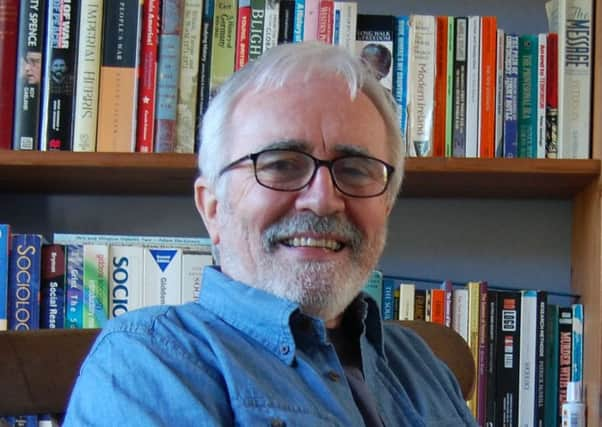Why complicate matters?


No community can work efficiently without some form of legal framework, but the situation gets confused when it comes to religion. If you were to join, let’s say, the Royal Antediluvian Order of Buffaloes, for example, you’d know exactly what you’re joining. You’d know that they meet together at regular intervals in a building dedicated for the purpose; you’d know that they observe certain rituals and formalities, that members are expected to contribute financially to the organisation. You’d recognise that there’s a clearly defined hierarchy, and there are rules to be observed, but that’s where the similarities with religion end.
Allow me to elaborate.
I was brought up in quite a strict religious home, and while most of the time I was surrounded by love and affirmation, I couldn’t make sense of the rules. We could go for a walk on Sundays, but we couldn’t ride our bikes or play ball. We had a radio in our house, but TV was frowned upon. Reading comics was banned. My sisters weren’t allowed to wear trousers, or makeup.
Advertisement
Hide AdAdvertisement
Hide AdWe all hated those rules, but I think what bothered us most about them was that no one seemed to be sure where they came from. I know now that they’re the man-made rules that Paul the apostle warned in his letter to the Colossians not to ‘...taste, handle or touch’.
Durkheim went on to say that rules are designed to keep a community or religious organisation distinct from the others, and I can understand that, but that wasn’t how it was presented to us as youngsters. We were told: ‘These are the rules you must observe if you want to be a good Christian.’ And that’s plain wrong; it’s an evil deceit, it’s what causes splits and sects and denominations. It’s one of the reason why people decide to have nothing to do with the faith of their fathers, because perhaps the main reason for their existence is to distinguish one group from another. In other words, everybody wants their group to be different from the others, so they create more rules, or fewer rules or different rules, in a desperate scramble to be seen as a unique group of believers.
It’s hard to understand that, because the same man who told us to steer clear of man-made rules also said that there’s no distinction in God’s eyes between Jews or Greeks, slaves or freemen, male or female. ‘We are all one in Christ,’ he said. And he took the early church to task because already he could see that they were beginning to form into sects. ‘My brothers,’ he said, ‘there are quarrels among you because some of you say: “I follow Paul”; others, “I follow Apollos”; others, “I follow Cephas”; still others, “I follow Christ.” Is Christ divided?’
When some people once asked Jesus: ‘What must we do to do the works God requires?’ he didn’t recommend a set of rules, he simply said, ‘Believe on the one whom he has sent.’ Jesus said only one thing distinguishes his followers from non-followers: ‘By this shall all men know that you are mine. Love one another.’ Isn’t that wonderfully simple?